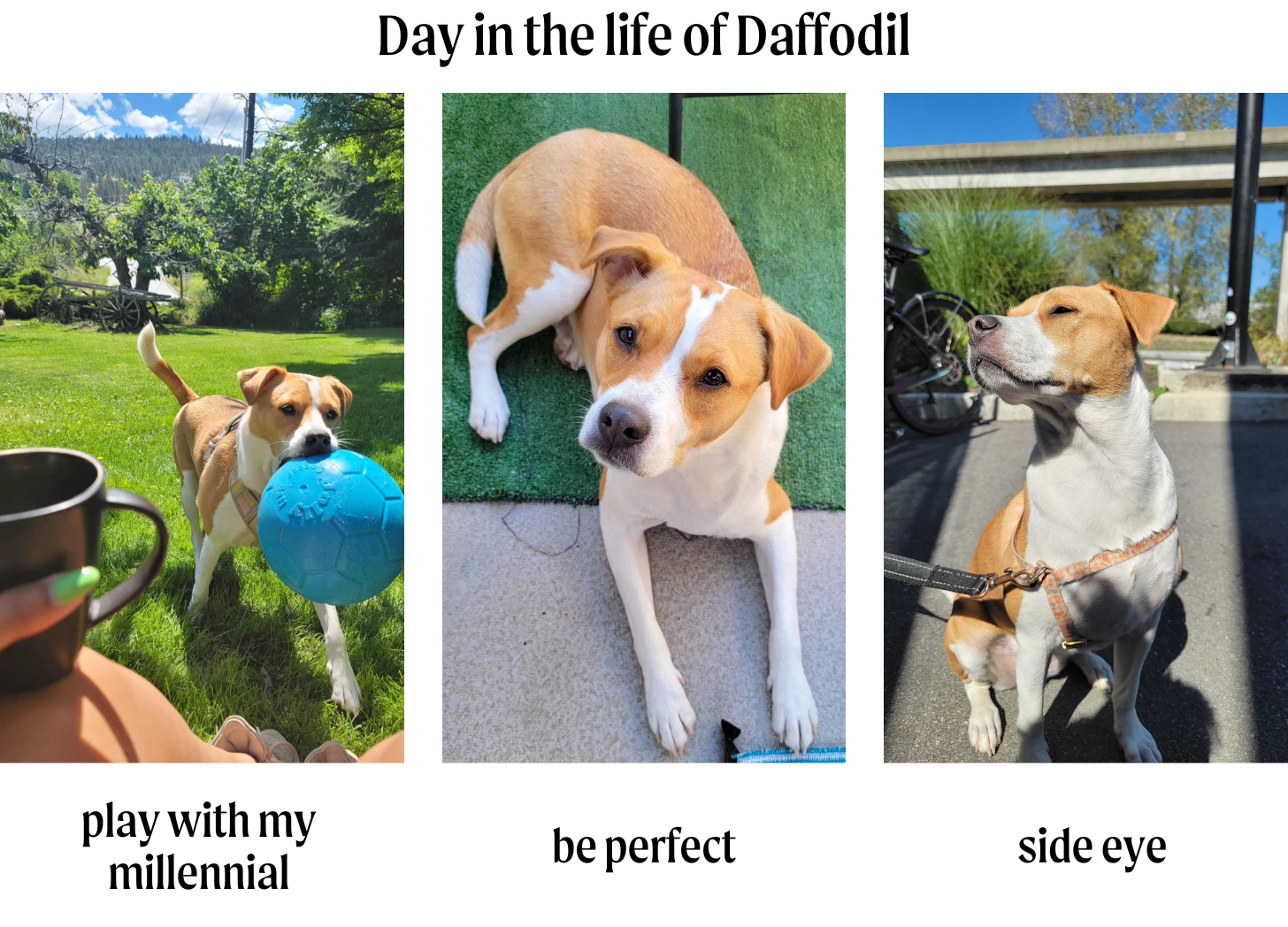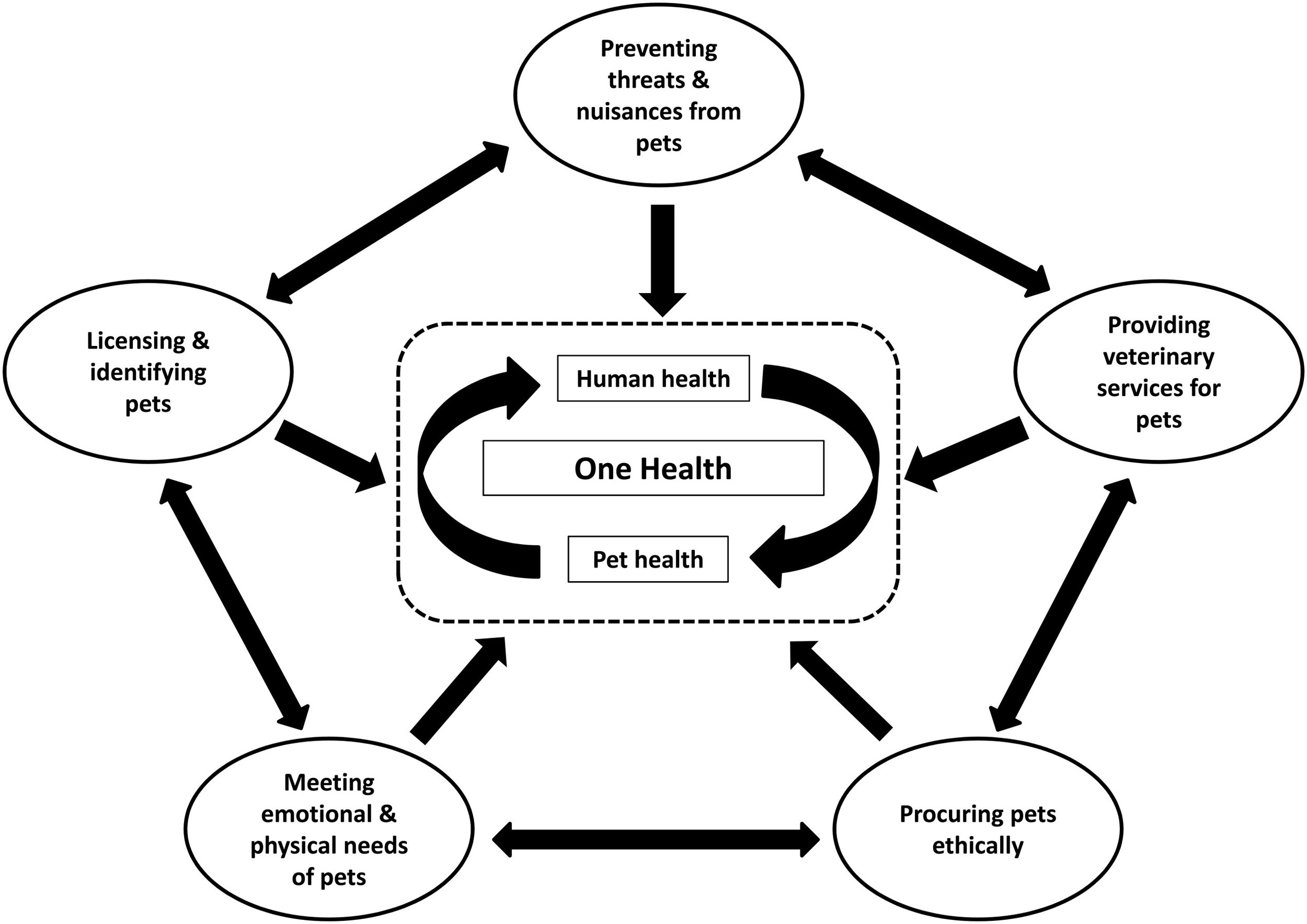Are Pet-Friendly Spaces An Equity Issue We Can No Longer Ignore?
By Cicely Belle Blain
This may seem like a silly premise, but bear with me. My inspiration for this piece comes from a personal experience. For over a year, I have been taking my dog, Daffodil, to an informal meet-up in a green space near my home in Burnaby. I wrote about this in my article ‘Free Dog Libraries: Trauma-Informed Joy for Ruff Times’ in Ripple of Change Magazine:
Each morning, rain or shine, I groggily pull on my sweatpants — well-worn from the past three years of above-average amounts of sofa-sitting — and head out the front door to meet my neighbours and their children. Most of the adults are sleepy and bleary-eyed like me, while others are eager early risers in colourful Lululemons and fanny packs full of snacks.
Some people are keen to chat and catch up on the neighbourhood goings-on that have occurred since we last saw each other — yesterday. Others just nod and smile at each other. It’s the perfect hangout for the more introverted, neurodivergent or socially anxious among us — we don’t even have to look each other in the eyes. There is a collective understanding that we are there for our children to get some fresh air, socialize and burn off steam.
In fact, I barely know anything about these people, but I know everything about their babies. Ella’s favourite toy is a purple alien, Charlie likes his space, Joey doesn’t realize how strong he is, and Ripley is a little bit scared of everything.
The only difference between my morning meet-ups and the ones an increasing number of my late-twenties-early-thirties friends are at is that these children… are dogs.
For me, this gathering represents one of the few free and low-barrier forms of connection in a city where socializing is difficult and expensive. Every so often an article titled something like “Why is it so hard to make friends in Vancouver?” appears and people concur in droves. A 2017 report by the Vancouver Foundation found that nearly a third of 18- to 24-year-olds across the region experience loneliness "almost always" or "often."
One evening as we gathered for our post-work dog social, a City by-law officer appeared and informed us that a complaint had been made about the group. Effective immediately, the gathering was shut down.
I felt a bit ridiculous but the sudden loss of this consistent and reliable group made me feel emotional. It felt like a reminder of how modern society can sometimes feel inhospitable and how community safety is so often defined by power and privilege. There is much more to say about the epidemic of Karens and their alignment with the police state, but back to dogs.
This experience led me to consider pet-friendly spaces more broadly. Domesticated animals have always been considered part of the family, but now, more than ever, they play a central role in our lives. Human-animal relationships are a powerful symbol of companionship, a source of solace in troubled times and a means of fostering community connections. In this beautiful photo essay, Alexandre Lamic documents residents of the Downtown Eastside and their dogs to showcase the profound depth of their relationships.
“Ella is my family,” says one resident, Joseph Denis Lamare, who lost his partner fifteen years ago, just a year after Ella came into their lives.
However, in our pursuit of these small moments of joy, we often overlook the equity issues that arise when access to pet-friendly spaces are restricted.
Internet culture offers a temporary reprieve, with jokes like "pets are the new kids, plants are the new pets," potentially masking deeper implications of both positive and negative changing social dynamics.
For many, the easing of heteronormative social expectations brings a long overdue opportunity for people to live freely in the kind of family or community dynamic they desire. For lots of folks, this includes a child-free lifestyle where pets (and/or plants) play the role of dependents and companions. For others, there is sadness in the unattainability of traditional adult milestones that previous generations favoured. Economic instability and the climate crisis are major factors in young peoples’ decisions around having children. A study published in The Lancet showed that 40% of 16-25 year olds surveyed were hesitant to have kids in the future due to climate concerns.
For those who do manage to find pet-friendly housing, there are still barriers, particularly to socializing and community connection.
Whether pets are replacing or co-existing with human children in one’s life, the fact remains that pet ownership is a luxury when it shouldn’t be. Although the Vancouver city council passed a motion in 2020 to ban ‘no pets’ clauses in rental agreements, little has changed in the past three years.
This clause particularly impacts poor, working class and disabled renters. While landlords have to make exceptions for registered service dogs, many people want and need to live with their pets who provide them with emotional or physical support, even if unofficially.
“The situation is particularly challenging for people with disabilities because of the legal grey area between the province's Residential Tenancy Act and Human Rights Code when it comes to tenants who have pets that aren't certified as service animals, according to lawyer Robert Patterson.” says a CBC article from 2021.
For those who do manage to find pet-friendly housing, there are still barriers, particularly to socializing and community connection. Understandably, there are restrictions on where pets can go in the public sphere out of concerns for safety and hygiene, among other things. Yet, it begs the question — is it possible for there to be more flexibility around pet-friendly spaces in the city?
In cities where pets are welcomed into pubs, restaurants, and on public transport, there's a palpable sense of togetherness that is sorely lacking in many North American cities. There is abundant evidence for this too — it’s not just good vibes (and my bias towards sitting outside a Parisian cafe eating croissants and pet-watching).
“As caring for fellow human beings, for non-human beings, for entire ecosystems and for oneself become entwined in urban life, we contend that healthy cities are being created and sustained,” write Melanie J. Rock and co-authors in their paper, Policies on pets for healthy cities: a conceptual framework.
They draw on the framework of One Health, which seeks to minimize harm and maximize the benefits of pets in cities for both human and non-human animals, aligning with the concept of socio-ecological systems in health promotion. For example, in cities where dogs have more freedom, space and socialization, there is a reduced risk of dog aggression towards humans. This approach includes considering non-human animals in how decisions are made around city planning, licensing and policy, ethics and other factors, resulting in a positive experience for humans and non-human animals alike.
The framework also suggests that local governments should play a bigger role in subsidizing the costs of veterinary care, neutering and adoption fees, making pet ownership more accessible.
Policies on pets in urban areas and ‘One Health’. Source.
I chatted with Jaqueline Revel, founder of the Good Dog Library, about dog-friendly cities. Here’s what she wrote to me:
As a 41-year-old woman who is child-free by choice, but not animal-free, running the dog library has made me keenly aware of how many families are made up of child-free adults and animals. My sense is that these families are looking for inclusive spaces where they can spend time with their animals.
I lived in Paris for a time and had my beloved, late dog Violet with me at the time. I was hard pressed to find places that didn't allow dogs there. I spent most of my days in restaurants and cafes where I was always welcomed with a booth for me and my sweet Violet, a bowl of water and a dog version of croque monsieur (I'm not even kidding!).
The Good Dog Library is for everyone — including people who have children and also are children, but I do have the sense it has been particularly important for people like me, whose dogs are their companions, babies, best friends, the centre of their worlds. And I think it goes beyond folks seeking spaces for their dogs, I have a sense that the families we are talking about are also looking for ‘experiences’ they can have with their dogs. I love the ideas of spaces and experiences curated for these families who are becoming increasingly ubiquitous as the cost of living rises, as housing becomes less affordable, and as more families are electing to be childfree.
Pet-friendly spaces are not merely a matter of convenience; they are an equity issue intertwined with our pursuit of happiness, companionship and a sense of community.



